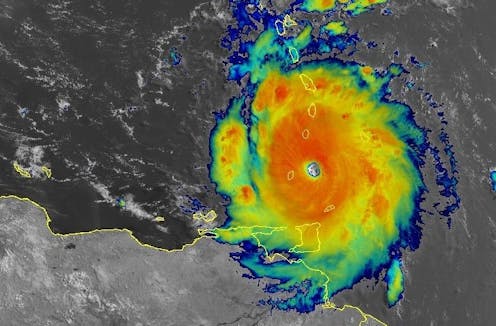
Environment + Energy – Articles, Analysis, Opinion
Displaying 1 - 25 of 2435 articles

Beryl’s strength and rapid intensification set records for so early in the year. It’s alarming in what’s expected to be a very active Atlantic hurricane season, as a meteorologist explains.
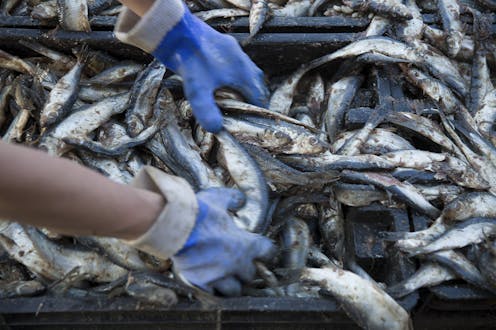
A widely anticipated Supreme Court ruling will sharply limit federal agencies’ power to interpret the laws that they execute and decide how best to carry them out.
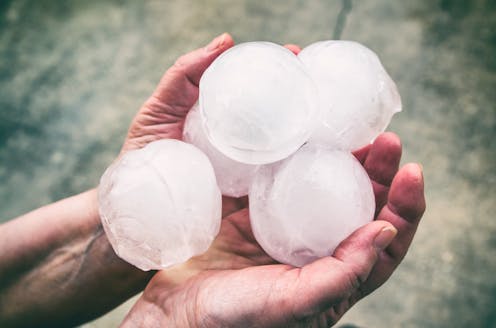
An atmospheric scientist explains how hail forms and what to do if you’re suddenly being pelted by giant ice chunks falling from the sky.
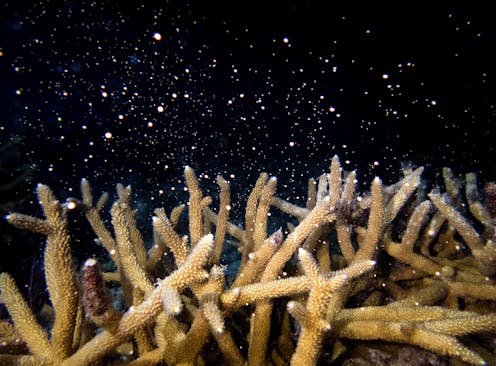
Coral reefs share genetic material across wide areas, with help from ocean currents. This ability is especially important during episodes like the mass bleaching currently occurring.

The June heat wave triggered warnings of a flash drought and caused a surge in ER visits. Many other countries have been facing extreme heat at the same time.

A study in Detroit finds large areas without pet resources, mainly in lower-income and minority neighborhoods. Better access to supplies and services could help owners and animals thrive together.

Durability and the risk of chemicals being released when pipes heat up are just 2 concerns about plastic pipes.
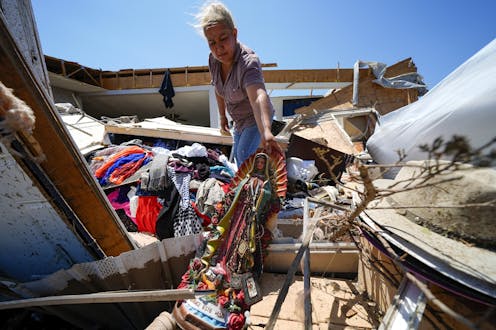
Spring 2024 was menacing for large parts of the US, with a tornado nearly every day in May. Tornado outbreaks tore up communities across multiple states.

A traffic engineer argues that, contrary to his profession’s view, ‘human error’ is not the main cause of deaths in car crashes in the US.

The heat comes from everywhere when you’re active outside on hot days – the Sun’s rays, the air around you, the ground and even your own body.

Ferns have evolved a mutually beneficial relationship with ants, but this happened late in their evolution. A recent study shows that old dogs can learn new tricks.
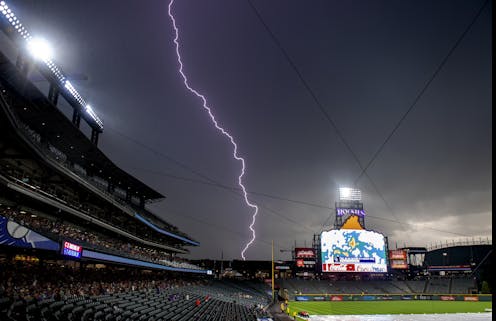
What really happens when lightning strikes cars, what to do if you’re out in the open or on a beach, and other tips for National Lightning Safety Awareness Week.

The new level won’t trigger automatic cleanups, but it sets a lower threshold for taking precautions to reduce lead exposure.

The answer depends in part on where you live. If it’s extremely hot and humid, the health risks are much higher.
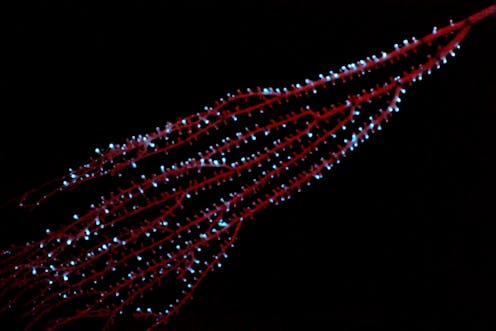
Dozens of animals, some on land but many in the ocean, can produce light within their bodies through chemical reactions. Scientists are still trying to understand when and why this trait developed.
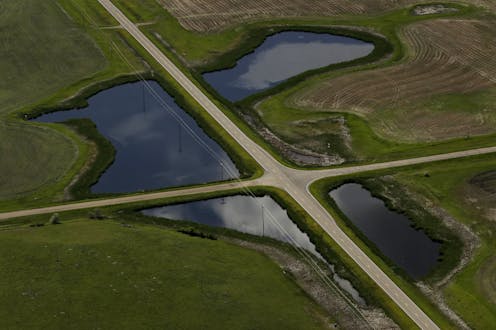
The Supreme Court drastically reduced federal protection for wetlands in 2023. Two environmental lawyers explain how private businesses and nongovernment organizations can help fill the gap.

Turning excess office space into apartments isn’t a panacea for the housing shortage, but it’s producing thousands of new units yearly and is more sustainable and economical than new construction.

The most comprehensive assessment yet of a powerful greenhouse gas shows which countries are driving the increase, and which ones are successfully cutting emissions.
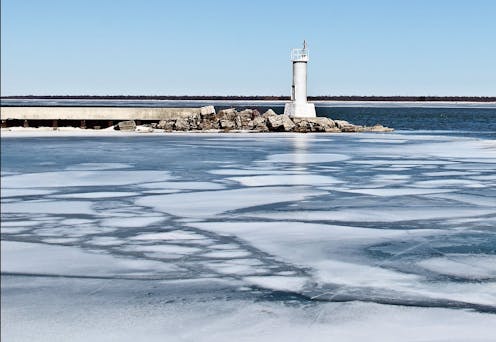
In winter 2023-24, the Great Lakes’ ice cover was near record lows, peaking at just 16%. Researchers explain how diminishing ice could have consequences for fisheries, and how species are evolving.
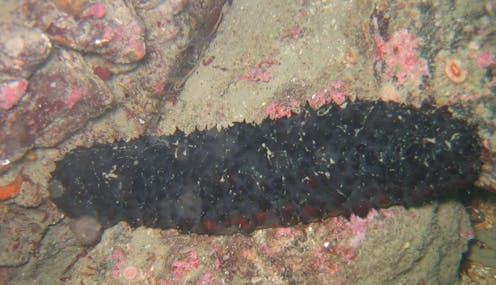
Sea cucumbers have been overharvested for centuries. At the same time, coral reefs have declined as well. Research suggests that saving the former may help restore the latter.
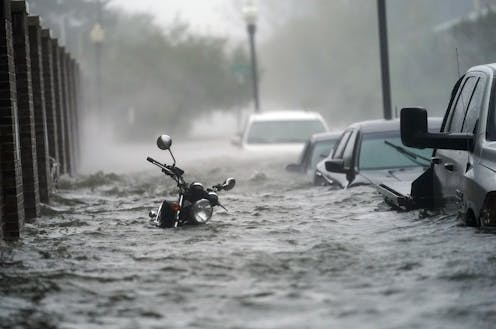
Global ocean temperatures have been at record highs almost daily for over a year, and economies are feeling the heat.
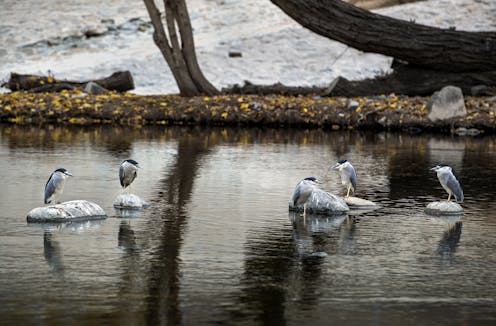
Even in a concrete jungle like Los Angeles, wild species show up in surprising places. New research identifies the types of wildlife that best tolerate urban development.
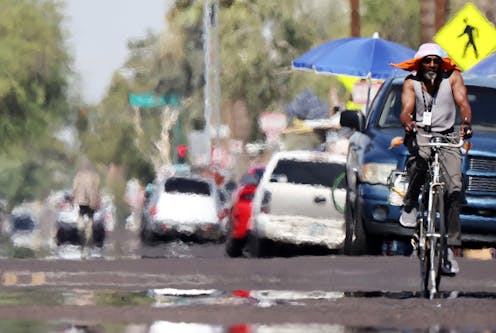
A risk expert explains how to read the heat index and interpret extreme heat warnings, and how to stay safe.
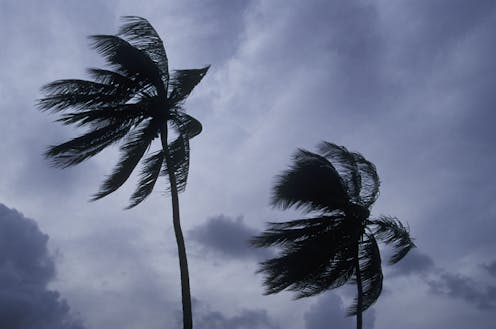
Hardening electric transmission systems and monitoring ocean temperatures are two key priorities.
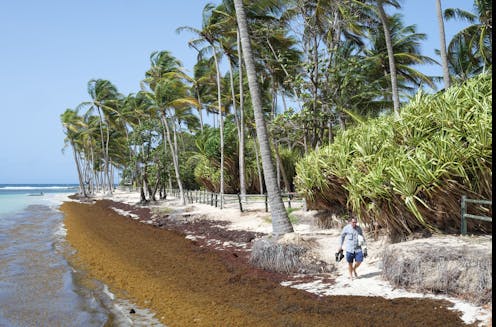
A leading driver of this seaweed invasion is pollution, carried down rivers and into the Atlantic Ocean from the continents.
